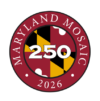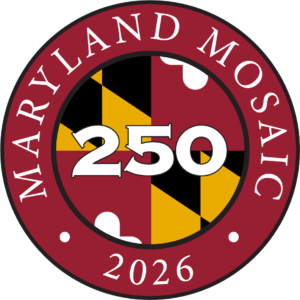Mosaic Pieces
Welcome to the complete Maryland Mosaic.
The Mosaic is not presented chronologically but presents a randomized selection of Mosaic Pieces to spark your interest in a particular event or person. If you would like to have a more ordered chronological overview, use the six fixed time period options on the right of the screen to get a more immediate picture of an historical period. You can also explore by county or by category. Our predefined categories, tags, counties and chronological brackets will help you see links between the Pieces.
The collection has over 140 firsts, including events, people, places, objects, documents or buildings that are unique to Maryland and to the nation. The Mosaic is part of Maryland’s contribution to the U.S. 250th anniversary in 2026. It covers the period from 1776 to the present. You will find at least one Piece for every county and Baltimore City, making this a statewide project.
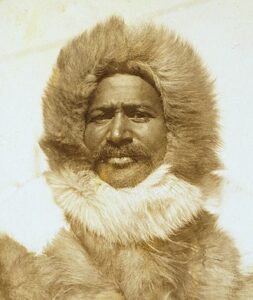
Mathew Henson reaches North Pole
Born in Charles County to a sharecropping family, Mathew Henson meets Robert Peary, joining him for the first party to reach the North Pole in 1909.
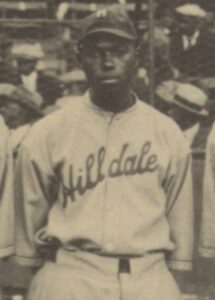
Marylanders dominate baseball’s third base
William “Judy” Johnson finishing his 17th baseball season with the Negro League in 1937, is named the League’s best 3rd baseman. Brooks Robinson, born in 1937, finishing 23 seasons with the Orioles, is named the best 3rd baseman in Major League history.
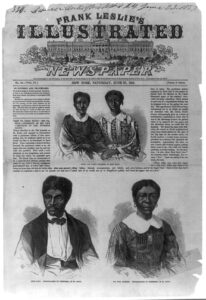
Marylander Roger B. Taney hands down the Dred Scott decision.
Roger Taney, Maryland native and Supreme Court Chief Justice, delivers 7-2 opinion in 1857, in the Dred Scott case, declaring that Blacks in the US are not considered citizens nor entitled to government protection, and that Congress cannot prohibit slavery. The decision becomes a major factor leading to the Civil War.
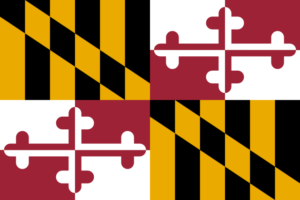
Maryland’s flag, the most popular, has a long history
The General Assembly makes new (old) flag official in 1904. Based on heraldic crests in the George Calvert family it is now the most popular and most recognized state flag. The flag was used by both sides during the Civil War conflict. A full description of the flag’s history is on Maryland Secretary of State’s website.
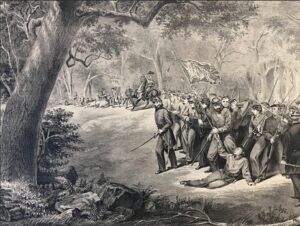
Maryland soldiers from both North and South fight at the Battle of Front Royal
Soldiers from both North and South units fight at the Battle of Front Royal. in 1861, pictured. A year later they engage again at Gettysburg. These are the only times in US military history that regiments with the same designations from the same state engage in combat.
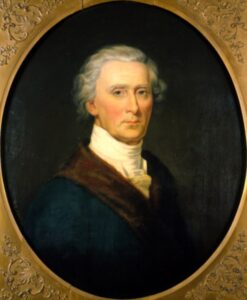
Maryland Signers of the Declaration
Charles Carroll and William Paca sign the Declaration of Independence, representing Maryland. Carroll (pictured) is the only Catholic signer.
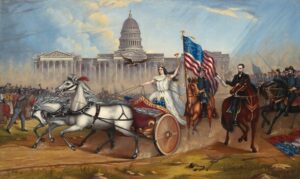
Maryland passes a new constitution that outlaws slavery 3 months before the 13th Amendment.
Maryland unionists pass a new state constitution in 1864 that outlaws slavery and disenfranchises Confederate sympathizers
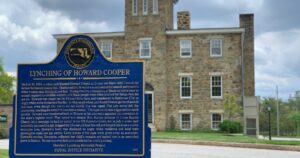
Maryland Lynching Truth and Reconciliation Commission established
Howard Cooper, African American, at 15 in 1885, is among the youngest persons in US to be lynched. He is lynched in front of the old Towson jail. Maryland is first to create a Lynching Truth and Reconciliation Commission in 2019.
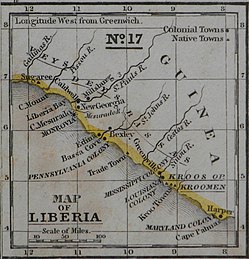
Maryland Colonization Society creates a republic in Africa
The Maryland Colonization Society is formed in 1827 to encourage free Blacks to emigrate to Africa. The Maryland General Assembly funds a separate republic in Liberia for 20 years. Map shows Maryland colony in lower right.
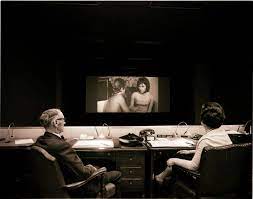
Maryland Board of Censors goes out of business
Maryland closes the country’s longest surviving state censorship board (1916-1981) as a cost cutting measure. Board member Mary Avara (on right) becomes well known for policing violence, language and sex content in films and for admonishing John Waters.
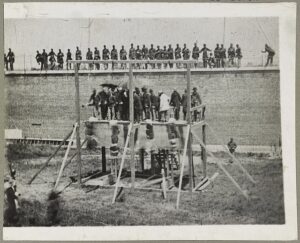
Mary Surratt is the first woman hanged by the federal government
Mary Jenkins Surratt is hanged in 1865 with three other conspirators for plotting to kill President Abraham Lincoln. She is the first woman executed by the federal government. She is hanging on the far left of the scaffold.
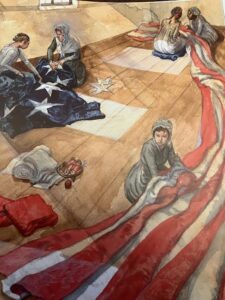
Mary Pickersgill sews the flag that becomes the Star Spangled Banner
Mary Pickersgill with others creates a 30′ x 42′ flag in 1813 and delivers it to the Ft. McHenry garrison. It becomes THE Banner.

Marin Alsop is the first woman appointed to a major American orchestra
Marin Alsop is the first woman appointed to a major American orchestra.
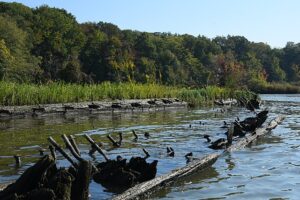
Mallows Bay National Marine Sanctuary is the first in an American River
Mallows Bay in Charles County became home to a wooden “ghost fleet” of 230 World War II ships in 2019. It is now a wildlife sanctuary.
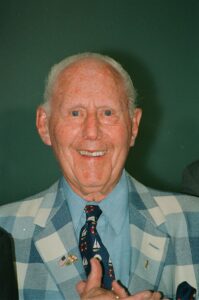
Louis Goldstein, longest serving Maryland politician
Louis Goldstein, much loved and much admired, is elected to state comptroller nine times, dying in the middle of his tenth campaign.
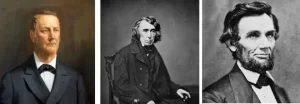
Lincoln suspends habeas corpus, locks up secessionists at Ft. McHenry
Lincoln suspends Habeas Corpus to jail secessionists at Ft. McHenry in 1861. John Merryman (pictured on the left) sues and Supreme Court Justice Roger Taney (center in photo) rules against Lincoln who ignores the ruling.
